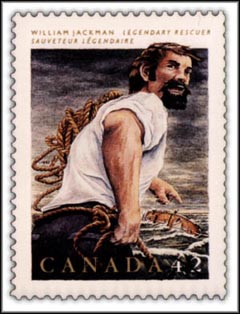Browse "Commemorations"
-
Article
Discovery Day
Discovery Day is a statutory holiday in Yukon commemorating the discovery of gold that set off the Klondike Gold Rush and led to the formation of the territory.
"https://d2ttikhf7xbzbs.cloudfront.net/media/media/aac924b3-ed98-4165-8ab5-4c8b2702cad6.jpg" // resources/views/front/categories/view.blade.php
https://d2ttikhf7xbzbs.cloudfront.net/media/media/aac924b3-ed98-4165-8ab5-4c8b2702cad6.jpg
-
Article
Niobe Day
Since 2014, Niobe Day has been celebrated every year on 21 October by the Royal Canadian Navy. It commemorates the entrance of HMCS Niobe, one of Canada’s first two warships, into Halifax Harbour on 21 October 1910. Niobe, which had been purchased from Britain, was the first Canadian warship to enter Canadian territorial waters. Before 2014, the Canadian navy marked Trafalgar Day every 21 October in commemoration of the British victory at the Battle of Trafalgar (1805).
"https://d2ttikhf7xbzbs.cloudfront.net/HMCSNiobe/HMCS Niobe entering Halifax on Trafalgar Day 1910.jpg" // resources/views/front/categories/view.blade.php
https://d2ttikhf7xbzbs.cloudfront.net/HMCSNiobe/HMCS Niobe entering Halifax on Trafalgar Day 1910.jpg
-
Macleans
Preserving St. Roch
A small horde of second- and third-graders swarms down onto the blood-red deck like so many giggling pirates. But the "blood" on the deck is really red-oxide paint. And the children - from Parkcrest Elementary School in Burnaby, B.C.This article was originally published in Maclean's Magazine on May 11, 1998
"https://development.thecanadianencyclopedia.ca/images/tce_placeholder.jpg?v=e9dca980c9bdb3aa11e832e7ea94f5d9" // resources/views/front/categories/view.blade.php
https://development.thecanadianencyclopedia.ca/images/tce_placeholder.jpg?v=e9dca980c9bdb3aa11e832e7ea94f5d9
-
Macleans
RCMP Recreates Historic March
Growing up in the small town of Hartney in the southwest corner of Manitoba, Grant Little believed that the Royal Canadian Mounted Police "hung the moon.This article was originally published in Maclean's Magazine on July 12, 1999
"https://development.thecanadianencyclopedia.ca/images/tce_placeholder.jpg?v=e9dca980c9bdb3aa11e832e7ea94f5d9" // resources/views/front/categories/view.blade.php
https://development.thecanadianencyclopedia.ca/images/tce_placeholder.jpg?v=e9dca980c9bdb3aa11e832e7ea94f5d9
-
Article
Remembrance Day in Canada
Remembrance Day is a yearly memorial day that is observed in many Commonwealth countries, including Canada, to remember those who died in military service, and honour those who served in wartime. It is observed across Canada each year on 11 November — the anniversary of the Armistice agreement of 1918 that ended the First World War. On Remembrance Day, public ceremonies and church services often include the playing of “Last Post,” a reading of the fourth stanza of the poem “For the Fallen,” and two minutes of silence at 11 a.m. Wreaths are laid at local war memorials and assemblies are held in schools. Millions of Canadians wear red poppy pins in the weeks leading up to and on 11 November in remembrance. In 2020 and 2021, Remembrance Day services and events were affected by the COVID-19 pandemic. Many events were either held online, cancelled or limited to a small number of participants due to fear of contagion.
"https://d2ttikhf7xbzbs.cloudfront.net/media/media/064a5591-1989-4fac-b81e-7bd9099c8053.jpg" // resources/views/front/categories/view.blade.php
https://d2ttikhf7xbzbs.cloudfront.net/media/media/064a5591-1989-4fac-b81e-7bd9099c8053.jpg
-
Article
Remembrance Day Poppy
The red poppy is a symbol of Remembrance Day that was inspired by the poem “In Flanders Fields,” written by Lieutenant-Colonel John McCrae. Canada officially adopted the poppy as a symbol of remembrance in 1921. Red poppy pins are sold by the Royal Canadian Legion and worn by millions of Canadians in the weeks leading up to and on 11 November.
"https://d2ttikhf7xbzbs.cloudfront.net/media/media/064a5591-1989-4fac-b81e-7bd9099c8053.jpg" // resources/views/front/categories/view.blade.php
https://d2ttikhf7xbzbs.cloudfront.net/media/media/064a5591-1989-4fac-b81e-7bd9099c8053.jpg
-
Macleans
Schooner or later
The Bluenose schooner went undefeated in nearly two decades of racing starting in 1921, but restoring memories of its past glory has left Nova Scotia taxpayers at a loss.This article was originally published in Maclean's Magazine on September 23, 2013
"https://development.thecanadianencyclopedia.ca/images/tce_placeholder.jpg?v=e9dca980c9bdb3aa11e832e7ea94f5d9" // resources/views/front/categories/view.blade.php
https://development.thecanadianencyclopedia.ca/images/tce_placeholder.jpg?v=e9dca980c9bdb3aa11e832e7ea94f5d9
-
Editorial
The Heroism of William Jackman
The following article is an editorial written by The Canadian Encyclopedia staff. Editorials are not updated.On 9 October 1867, in Spotted Island Harbour, Labrador, Captain William Jackman secured his vessel ahead of a vicious storm and went ashore to visit his old friend, John Holwell. Before the day ended, events transpired that earned Jackman a place in Newfoundland history — and legend.
"https://d2ttikhf7xbzbs.cloudfront.net/media/media/ab2a7cfb-9c8d-4afb-81e1-d63780c50952.jpg" // resources/views/front/categories/view.blade.php
https://d2ttikhf7xbzbs.cloudfront.net/media/media/ab2a7cfb-9c8d-4afb-81e1-d63780c50952.jpg
-
Article
United Empire Loyalists' Association of Canada
The United Empire Loyalists' Association of Canada (UELAC) is a national organization that brings together descendants of United Empire Loyalists and promotes their memory and history through conferences, research, the maintenance of plaques and monuments and other such works. Membership is also open to those without Loyalist heritage. There are 28 branches in Canada, located in all provinces except Newfoundland and Labrador.
"https://d2ttikhf7xbzbs.cloudfront.net/media/media/3ef68354-0a3f-45a9-a803-aed291344b49.jpg" // resources/views/front/categories/view.blade.php
https://d2ttikhf7xbzbs.cloudfront.net/media/media/3ef68354-0a3f-45a9-a803-aed291344b49.jpg
-
Editorial
Victory in Europe (VE-Day) Remembered
The following article is an editorial written by The Canadian Encyclopedia staff. Editorials are not usually updated.
"https://d2ttikhf7xbzbs.cloudfront.net/media/media/3cd095ed-500b-41e3-a205-cfbe69084e62.jpg" // resources/views/front/categories/view.blade.php
https://d2ttikhf7xbzbs.cloudfront.net/media/media/3cd095ed-500b-41e3-a205-cfbe69084e62.jpg
-
Article
Victoria Day
Victoria Day is a statutory holiday remembered informally as "the twenty-fourth of May,” or “May Two-Four.” Originally a celebration of Queen Victoria's birthday, the holiday now marks Queen Elizabeth II's birthday as well. Victoria Day was established as a holiday in the Province of Canada in 1845 and as a national holiday in 1901. It is observed on the first Monday before 25 May.
"https://d2ttikhf7xbzbs.cloudfront.net/media/media/2f53ca71-4455-46ff-a3aa-7c119c9c67f7.jpg" // resources/views/front/categories/view.blade.php
https://d2ttikhf7xbzbs.cloudfront.net/media/media/2f53ca71-4455-46ff-a3aa-7c119c9c67f7.jpg
-
Macleans
Yukon Celebrates Gold Rush Centenary
Madeleine Gould can often be seen on the streets of Dawson sporting a T-shirt that reads: "The Yukon: where men are men and women are pioneers."This article was originally published in Maclean's Magazine on August 19, 1996
"https://development.thecanadianencyclopedia.ca/images/tce_placeholder.jpg?v=e9dca980c9bdb3aa11e832e7ea94f5d9" // resources/views/front/categories/view.blade.php
https://development.thecanadianencyclopedia.ca/images/tce_placeholder.jpg?v=e9dca980c9bdb3aa11e832e7ea94f5d9
